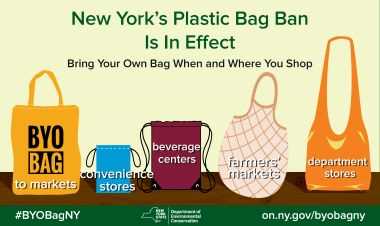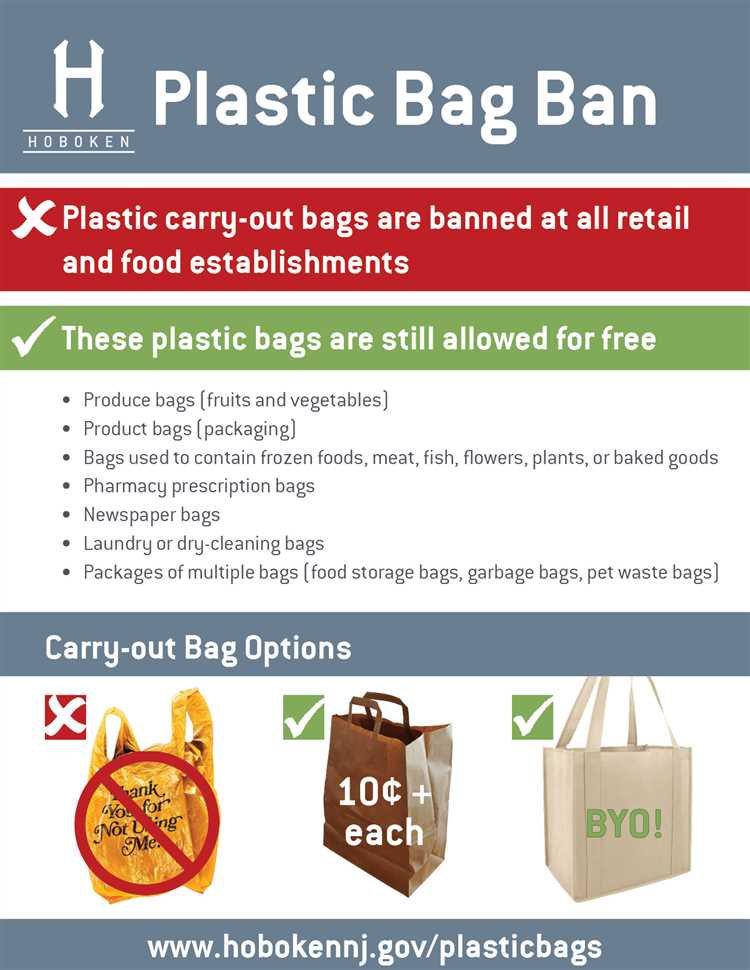Plastic bags have become an integral part of our daily lives, but their convenience comes at a cost. The environmental impact of plastic bags is well-documented, but what about their impact on public health? Many cities and countries around the world have implemented plastic bag bans in an effort to reduce waste and promote sustainability. However, the effects of these bans on public health are still being studied.
One of the main concerns regarding plastic bags is their contribution to pollution and litter. Plastic bags are not biodegradable and can take hundreds of years to decompose. As they break down, they release toxic chemicals into the environment, contaminating soil, water sources, and wildlife. This contamination can have serious repercussions for human health, as these chemicals can make their way into the food chain and eventually into our bodies.
Another health issue related to plastic bags is their potential to spread disease. Plastic bags are often used to carry groceries, but they are rarely cleaned or disinfected. This means that they can become a breeding ground for bacteria and other pathogens. When people reuse these bags without washing them, they risk spreading these harmful microorganisms to their food and kitchen surfaces, leading to foodborne illnesses.
Furthermore, the production of plastic bags involves the use of fossil fuels and the emission of greenhouse gases. These pollutants contribute to air pollution, which can have a detrimental impact on respiratory health. Studies have shown that air pollution from plastic bag production and disposal can increase the risk of respiratory diseases, such as asthma and chronic obstructive pulmonary disease (COPD).
In conclusion, plastic bag bans have the potential to have a significant impact on public health. By reducing plastic waste and pollution, these bans can help to mitigate the harmful effects of toxic chemicals on the environment and human health. Additionally, by encouraging the use of reusable bags and promoting good hygiene practices, plastic bag bans can help to reduce the risk of foodborne illnesses. Finally, by reducing air pollution, these bans can contribute to better respiratory health for individuals and communities. It is clear that the benefits of plastic bag bans extend beyond the environment and can positively impact public health.
- Environmental Risks Posed by Plastic Bags
- Plastic Bag Bans and Reduction of Waste
- Positive Effects of Plastic Bag Bans
- Data Supporting Plastic Bag Bans
- Positive Effects on Marine Life and Ecosystems
- Health Risks Associated with Plastic Bag Use
- Question-answer:
- What is the impact of plastic bag bans on public health?
- How do plastic bag bans reduce pollution?
- What are the environmental hazards associated with plastic bags?
- How do plastic bag bans improve public health?
- What are the alternatives to plastic bags?
- What is the impact of plastic bag bans on public health?
Environmental Risks Posed by Plastic Bags
Plastic bags have become a ubiquitous part of our daily lives, but their convenience comes at a cost to the environment. The environmental risks posed by plastic bags extend to various areas, including waste management, wildlife, and overall ecosystem health.
One of the major concerns is the impact of plastic bags on waste management. Plastic bags are not easily recyclable and often end up in landfills, where they take centuries to degrade. This not only takes up valuable landfill space but also contributes to the release of harmful substances into the environment. As plastic bags break down, they can release microplastics and chemicals that can contaminate soil and water sources.
In addition to waste management, plastic bags pose significant risks to wildlife. Animals such as birds, turtles, and marine mammals often mistake plastic bags for food and can suffer from ingestion or entanglement. Many animals die each year due to plastic bag-related injuries, and those that survive may suffer long-term health effects.
Furthermore, plastic bags have a negative impact on the overall health of ecosystems. When plastic bags enter water bodies, they can disrupt the natural flow of water, leading to contamination and decreased oxygen levels. This can harm aquatic organisms and plants that rely on healthy water ecosystems for survival.
Addressing the environmental risks posed by plastic bags requires a comprehensive approach that includes reducing their production and consumption, promoting reusable alternatives, and improving waste management systems. Plastic bag bans have proven effective in reducing their use and mitigating environmental damage, but broader efforts are needed to create a sustainable solution to this global problem.
Plastic Bag Bans and Reduction of Waste

Plastic bag bans have shown significant impact in reducing waste accumulation and promoting sustainable practices. By implementing these bans, communities and governments have successfully minimized the usage of single-use plastic bags, which are notorious for their negative environmental effects.
Positive Effects of Plastic Bag Bans

One of the main benefits of plastic bag bans is the reduction of plastic waste. Single-use plastic bags typically end up in landfills, where they take hundreds of years to decompose. These bans encourage individuals to switch to reusable bags, which significantly decreases the amount of plastic waste generated.
In addition to reducing waste, plastic bag bans also help reduce pollution. Plastic bags are lightweight and easily carried by wind, often ending up in rivers, oceans, and other natural environments. This pollution harms marine life and ecosystems and can even impact public health. By eliminating the use of plastic bags, bans help to mitigate this pollution and protect the environment.
Moreover, plastic bag bans contribute to a shift towards sustainable practices and increased awareness of the importance of preserving the environment. As individuals switch to reusable bags, they become more conscious of the impact of their everyday choices on the planet. This increased awareness can lead to further eco-friendly actions, such as recycling, reducing overall plastic consumption, and supporting other sustainable initiatives.
Data Supporting Plastic Bag Bans

Various studies have shown the positive impact of plastic bag bans on waste reduction. For example, a study conducted in California found that after implementing a statewide ban on plastic bags, there was a significant decrease in plastic bag litter on beaches and in waterways. Similar results have been observed in other regions and countries that have implemented plastic bag bans.
A comparison between cities with plastic bag bans and those without also reveals significant differences in waste accumulation. Cities with bans tend to have lower levels of plastic bag litter and overall plastic waste. This data further emphasizes the effectiveness of plastic bag bans in reducing waste and promoting healthier environments.
| Study | Location | Findings |
|---|---|---|
| California Study | California, United States | Significant decrease in plastic bag litter on beaches and in waterways |
| City Comparison Study | Various cities with bans vs. cities without bans | Cities with bans have lower levels of plastic bag litter and overall plastic waste |
In conclusion, plastic bag bans play a crucial role in reducing waste accumulation and promoting sustainable practices. These bans not only reduce plastic waste and pollution but also contribute to a shift towards environmentally conscious behavior. The data supports the effectiveness of plastic bag bans in creating healthier environments and fostering a more sustainable future.
Positive Effects on Marine Life and Ecosystems

Plastic bag bans have had a significant positive impact on marine life and ecosystems around the world. These bans help to reduce the amount of plastic waste that ends up in our oceans, which is a major threat to marine life.
One of the greatest dangers of plastic bags to marine life is that they can be mistaken for food by marine animals, leading to ingestion and suffocation. By banning plastic bags, we are reducing the number of bags that end up in the ocean, thereby decreasing the risk to marine animals.
Furthermore, the implementation of bag bans encourages the use of reusable bags, which are more durable and less likely to end up in marine habitats. This shift away from single-use plastic bags helps to protect marine ecosystems and reduce the overall pollution of our oceans.
Additionally, plastic bag bans can have positive effects on the overall health and biodiversity of marine ecosystems. By reducing the amount of plastic waste in the oceans, we are preserving the habitats of many marine species and protecting their delicate ecosystems.
Moreover, plastic bags can also introduce harmful chemicals and pollutants into marine environments, leading to further damage to marine ecosystems. By eliminating or reducing the use of plastic bags, we are reducing the introduction of these harmful substances into our oceans.
In conclusion, the implementation of plastic bag bans has numerous positive effects on marine life and ecosystems. These bans help to reduce the amount of plastic waste in our oceans, protect marine animals from harm, and preserve the biodiversity and health of marine ecosystems.
Health Risks Associated with Plastic Bag Use

Plastic bags, although convenient for carrying groceries and other items, pose significant health risks to both humans and the environment. Here are some of the main health hazards associated with the use of plastic bags:
- Chemical contamination: Plastic bags are made from a type of plastic called polyethylene, which often contains harmful chemicals such as lead, mercury, and phthalates. These chemicals can leach into food and beverages stored in plastic bags, leading to long-term health issues when consumed.
- Allergic reactions: Many individuals are allergic to certain chemicals used in plastic bag manufacturing, such as latex or dyes. Direct contact with plastic bags can cause skin irritations, rashes, or even severe allergic reactions in some cases.
- Choking and suffocation: Plastic bags can pose a choking hazard to small children and pets if they accidentally put them in their mouths. Moreover, these bags can also lead to suffocation if they cover someone’s face or head, particularly for infants or individuals with limited mobility.
- Environmental pollution: Improper disposal of plastic bags contributes to environmental pollution, which indirectly affects public health. When plastic bags end up in landfills or water bodies, they can release toxic chemicals into the soil and water, potentially contaminating food sources and drinking water supplies.
- Suffocation risk for marine life: Marine animals, such as sea turtles and seals, often mistake plastic bags for food and ingest them. This can cause blockages in their digestive tracts, leading to starvation, injury, or death.
To mitigate these health risks, many jurisdictions have implemented plastic bag bans or introduced initiatives to promote the use of reusable bags. These measures aim to reduce the overall consumption and disposal of plastic bags, ultimately protecting public health and the environment.
Question-answer:
What is the impact of plastic bag bans on public health?
The impact of plastic bag bans on public health is significant. These bans help reduce plastic waste, which in turn reduces pollution and environmental hazards. Plastic bags are known to cause harm to wildlife, clog drainage systems, and contaminate soil and water sources. By eliminating or minimizing their use, plastic bag bans can protect public health by reducing exposure to harmful pollutants and improving overall environmental conditions.
How do plastic bag bans reduce pollution?
Plastic bag bans reduce pollution by curbing the production, usage, and disposal of plastic bags. When plastic bags are banned, people are encouraged to use reusable bags or opt for other alternatives such as paper bags or biodegradable bags. Since plastic bags take hundreds of years to decompose, their absence means less plastic waste in landfills, streets, and bodies of water. This reduces the risk of pollution and its negative effects on public health and the environment.
What are the environmental hazards associated with plastic bags?
Plastic bags pose several environmental hazards. They are non-biodegradable, which means they do not easily break down in the environment. This leads to accumulation of plastic waste in landfills and natural surroundings. Plastic bags also contribute to litter, which can be harmful to both wildlife and humans. Animals can mistake plastic bags for food and end up choking or suffering internal injuries. Moreover, plastic bags can clog drainage systems, leading to flooding and damage to infrastructure. Additionally, the production of plastic bags requires the use of fossil fuels, contributing to greenhouse gas emissions and climate change.
How do plastic bag bans improve public health?
Plastic bag bans improve public health by reducing exposure to harmful pollutants and improving overall environmental conditions. As plastic bags are a common source of litter, their absence means less pollution in public spaces, parks, and waterways. This reduces the risk of respiratory problems, allergic reactions, and other health issues associated with exposure to pollutants. Plastic bag bans also encourage the use of reusable bags, which can be made from safer materials and are less likely to contaminate food and other items. Overall, these measures help promote a cleaner and healthier living environment for the public.
What are the alternatives to plastic bags?
There are several alternatives to plastic bags that individuals can use. Reusable bags, made from fabric or other durable materials, are a popular and eco-friendly choice. They can be used multiple times, reducing the need for single-use plastic bags. Paper bags, which are biodegradable, are another option. However, it important to note that paper bags require more resources to produce compared to plastic bags. Biodegradable bags, made from materials that break down much faster in the environment, are also available. These alternatives offer a more sustainable and less harmful choice for carrying groceries or other items.
What is the impact of plastic bag bans on public health?
The impact of plastic bag bans on public health is significant. By reducing the use of single-use plastic bags, bans can help reduce plastic pollution and its associated health risks.